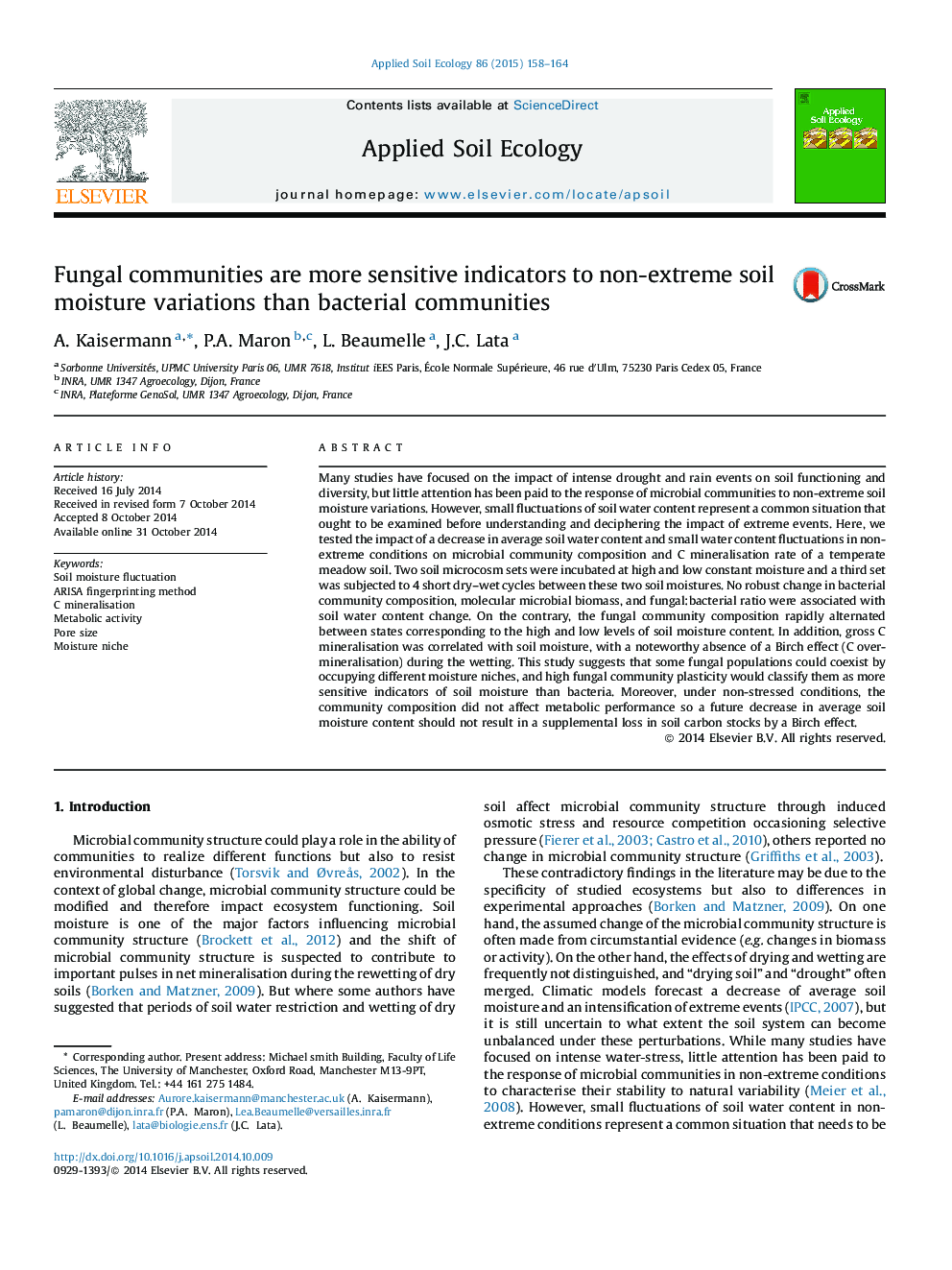| Article ID | Journal | Published Year | Pages | File Type |
|---|---|---|---|---|
| 4382103 | Applied Soil Ecology | 2015 | 7 Pages |
•The composition of fungal but not of bacterial communities is different at non-extreme range of soil moisture.•Fungal community composition has a high plasticity when soil moisture fluctuates.•The wetting of non-dry soil does not induce any C over-mineralisation.•The functional redundancy maintained same metabolic activity with different community compositions.
Many studies have focused on the impact of intense drought and rain events on soil functioning and diversity, but little attention has been paid to the response of microbial communities to non-extreme soil moisture variations. However, small fluctuations of soil water content represent a common situation that ought to be examined before understanding and deciphering the impact of extreme events. Here, we tested the impact of a decrease in average soil water content and small water content fluctuations in non-extreme conditions on microbial community composition and C mineralisation rate of a temperate meadow soil. Two soil microcosm sets were incubated at high and low constant moisture and a third set was subjected to 4 short dry–wet cycles between these two soil moistures. No robust change in bacterial community composition, molecular microbial biomass, and fungal:bacterial ratio were associated with soil water content change. On the contrary, the fungal community composition rapidly alternated between states corresponding to the high and low levels of soil moisture content. In addition, gross C mineralisation was correlated with soil moisture, with a noteworthy absence of a Birch effect (C over-mineralisation) during the wetting. This study suggests that some fungal populations could coexist by occupying different moisture niches, and high fungal community plasticity would classify them as more sensitive indicators of soil moisture than bacteria. Moreover, under non-stressed conditions, the community composition did not affect metabolic performance so a future decrease in average soil moisture content should not result in a supplemental loss in soil carbon stocks by a Birch effect.
